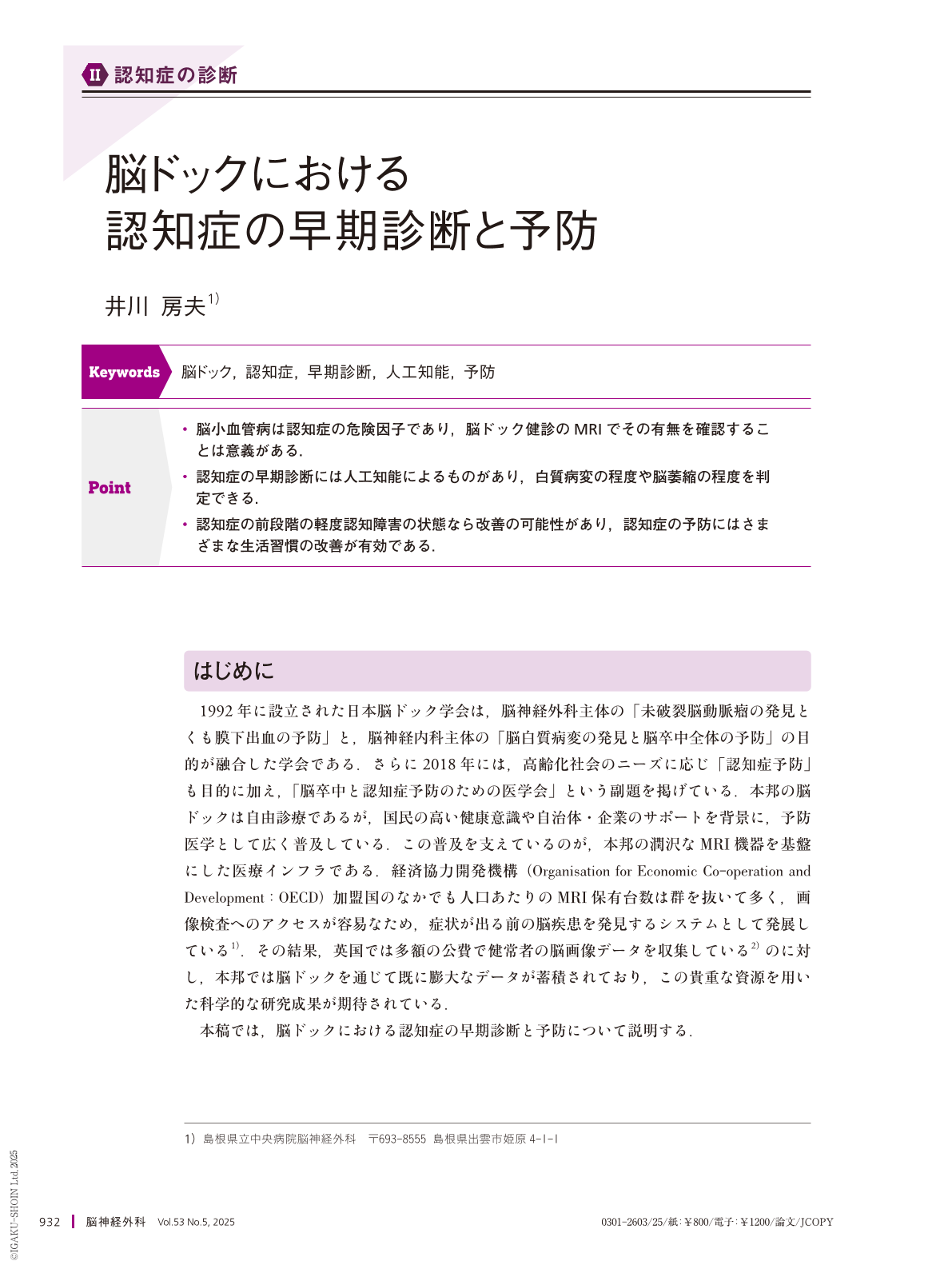Japanese
English
- 有料閲覧
- Abstract 文献概要
- 1ページ目 Look Inside
- 参考文献 Reference
Point
・脳小血管病は認知症の危険因子であり,脳ドック健診のMRIでその有無を確認することは意義がある.
・認知症の早期診断には人工知能によるものがあり,白質病変の程度や脳萎縮の程度を判定できる.
・認知症の前段階の軽度認知障害の状態なら改善の可能性があり,認知症の予防にはさまざまな生活習慣の改善が有効である.
The Japan Brain Dock Society, established in 1992, embodies two primary objectives: the detection of unruptured cerebral aneurysms and white matter lesions. In 2018, in response to the needs of an increasingly aging society, the Society broadened its mission to include dementia prevention, adopting the subtitle “A Medical Society for the Prevention of Stroke and Dementia.”
Although brain dock examinations are not covered by public health insurance and are offered as self-funded services, they have become widely accepted as a form of preventive medicine in Japan. This acceptance is supported by high public health awareness and proactive participation from municipalities and corporations. Among OECD countries, Japan has the highest number of MRI units per capita, ensuring easy access to neuroimaging and facilitating the detection of asymptomatic brain diseases. Consequently, Japan has already amassed a substantial volume of brain dock data.
Recent rapid advances in artificial intelligence (AI) are now being applied to the brain dock field, particularly for the early diagnosis of dementia. This article explores how brain dock programs are integrating AI technologies and how they are expected to contribute to the early detection and prevention of dementia.

Copyright © 2025, Igaku-Shoin Ltd. All rights reserved.


